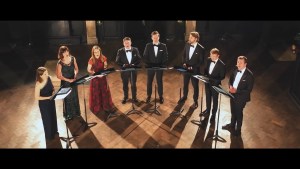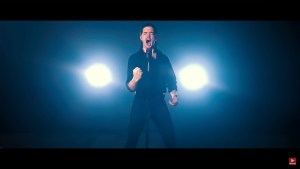Lenten Campaign 2025
This content is free of charge, as are all our articles.
Support us with a donation that is tax-deductible and enable us to continue to reach millions of readers.
Epiphany marks the end of the Christmas season (kinda), but in terms of biblical events it signifies the physical manifestation of Christ to the gentiles. In the Catholic tradition we celebrate the visitation of the Magi, also known as the “Wise Men” or the “Three Kings,” who traveled to see the newborn king to present him with gifts of gold, frankincense, and myrrh. Today, to close out Christmas, we are listening to one of the finest renditions of “We Three Kings.”
The Roches released their Christmas album, We Three Kings, in 1990 and so named it for the flagship carol. The entire album is filled with Christmas music that may be considered unconventional, as the folk trio of sisters reimagined many holiday tunes with instruments and arrangements that almost make them seem like different songs.
This unconventionality can clearly be heard in the soprano saxophone-driven intro of “We Three Kings,” featured above. The player cleverly uses modal scales to infuse the tune with a Middle Eastern tone, which pervades the song. Meanwhile the singers, who are also playing the guitar parts, inject the tune with rhythms pulled straight from the Western Americana tradition, with a galloping sway that brings to mind imagery of a horse rushing through the desert.
This pairing of tones from the East and West is not only appealing to the ear, but it also pays homage to the song’s history as the first widely popular Christmas carol written in the United States. “We Three Kings” was penned by John Henry Hopkins Jr., an Episcopal clergyman who was serving as rector of a Pennsylvanian congregation.
Hopkins Jr. initially wrote the lyrics and music to “We Three Kings” for a Christmas pageant in New York City, and for a while it was only sung by the composer and his close friends. His loved ones couldn’t get enough of the piece and soon he independently published it in 1863. From there, it made its way to the UK and by 1916 the hymn was officially published in the Episcopal hymnal.
As we mentioned, this hymn was written for a Christmas pageant and because of this the song splits its verses among the three kings, to be sung in character. The opening and closing verses are sung together, but the second verse belongs to Gaspar who brought gold, the third belongs to Melchior who brought frankincense, and the fourth belongs to Balthazar bringing myrrh. It should be noted, however, that the names and numbers of the magi were not recorded in Matthew’s gospel. What we know of the Magi comes from history and tradition.


